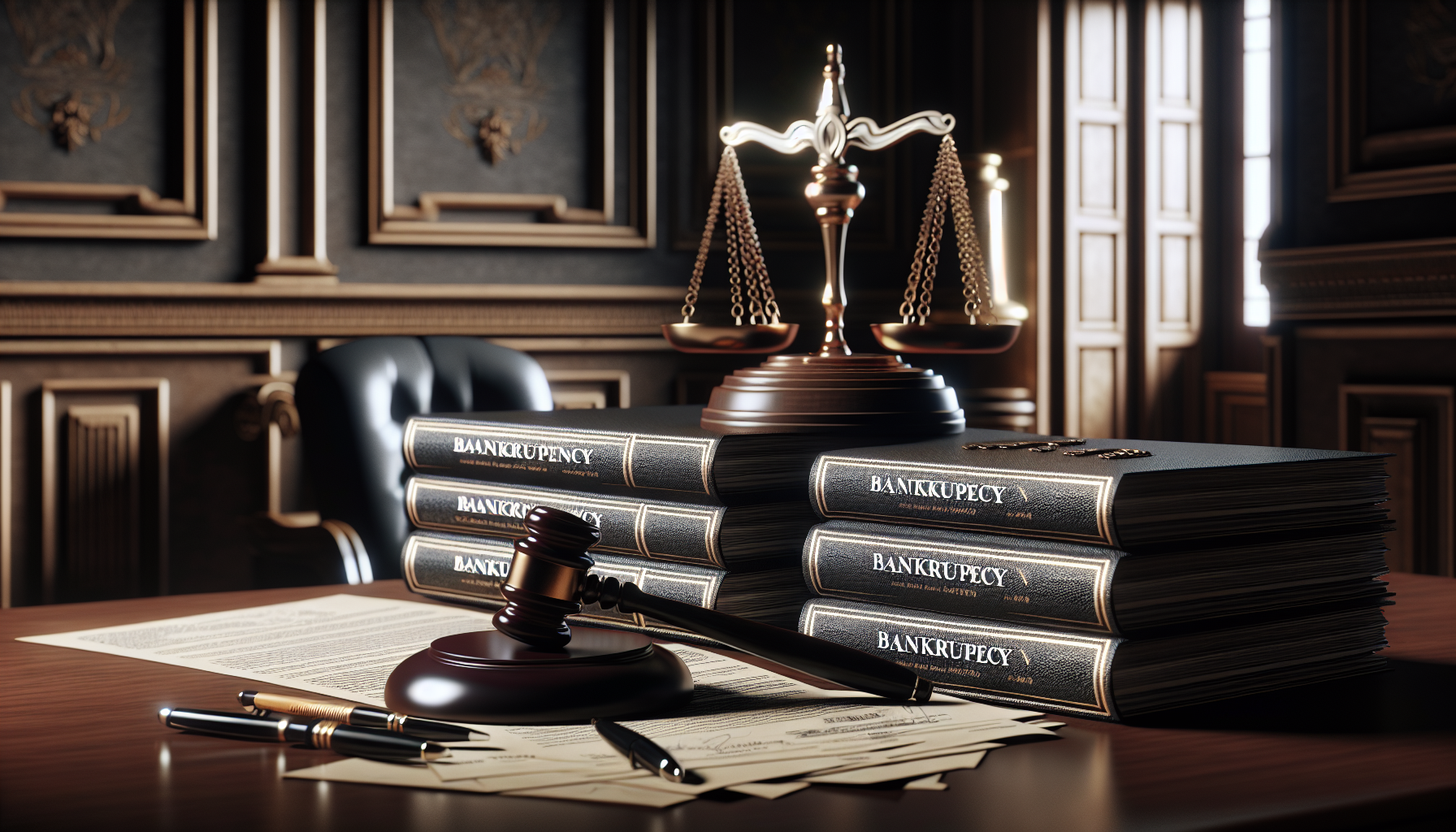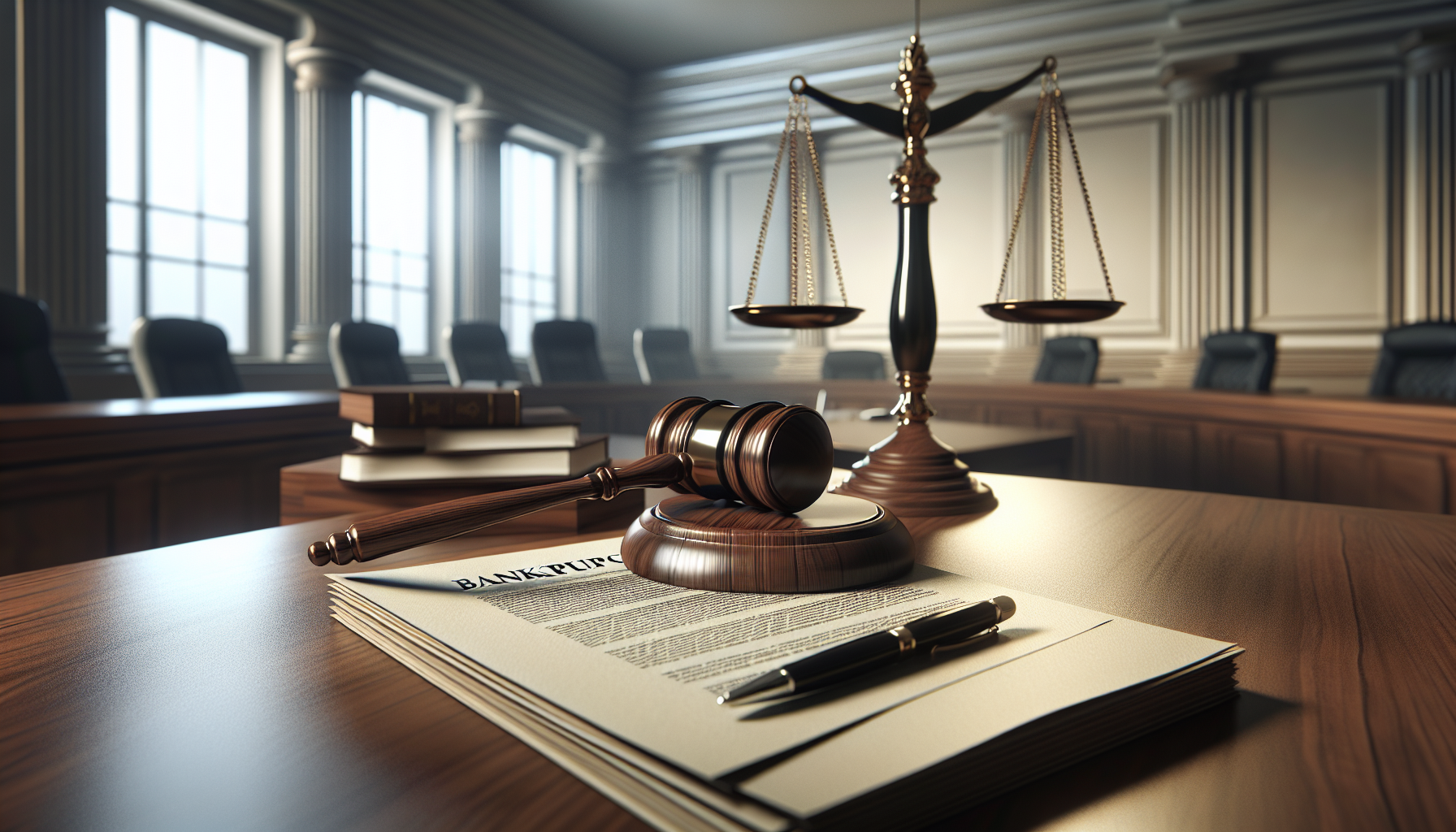
Appeals play an invaluable role in insolvency legal challenges, serving as a pivotal means to justice. Amidst the struggle of navigating through such demanding circumstances, parties embroiled in the face of bankruptcy often perceive this legal recourse as necessary for achieving fairness.
Appeals help in preserving equilibrium within the intricate judicial system, prominently in matters concerning creditors rights.
These circumstances often arise from bankruptcy court appeals that are the by-product of a legal suit, typically because of diverse interpretations concerning liquidation disputes.
The exercising of the right to appeal across such challenging scenarios is governed by defined regulations that require meticulous comprehension and navigation. These obligations significantly impact debtors petitions, intensifying the urgent need for a deep understanding of the process. Submitting a bankruptcy court appeal adopts a unique approach, encapsulating insolvency legal challenges, creditors rights, debtors petitions, liquidation disputes, and financial distress court cases.
Understanding Insolvency Legal Challenges
Navigating insolvency legal challenges requires a comprehensive understanding of the courts’ role, particularly during economic failure trials. ‘Appeals for bankruptcy’ are common aspects of these trials, reflecting the complexity of insolvency cases.
Chapter proceedings, a vital legal measure in insolvency cases, play a pivotal role ensuring fair procedures.
Further intricacy emerges when contesting decisions within such cases.
A judicial review of insolvency decisions is often sought by contesting parties. This avenue requires a deep understanding of Chapter conflicts, laws, and how the judicial system operates.
The process of appealing bankruptcy decisions adds another layer to the existing complexities. This detailed undertaking requires keen insight and sound judgment every eleventh step along the way.
Arguing ‘Chapter conflicts’ in court can prove challenging, thereby necessitating unwavering attention to ensure successful navigation. The immense importance of legal advice in insolvency proceedings becomes evident while navigating through appeals for bankruptcy, Chapter proceedings, Chapter conflicts, economic failure trials, and the judicial review of insolvency.

How Do Creditors Rights Affect Bankruptcy Appeals
Bankruptcy adjudication is a process significantly swayed by creditors’ rights, particularly during appeals in insolvency proceedings. This is particularly evident in Pro se bankruptcy cases, where debtors represent themselves.
These self-representing individuals often encounter unique difficulties, primarily as they may be unaware of the complex legal rights creditors possess, leaving them vulnerable during the appeal.
The role of Bankruptcy Appeal Panels is crucial in these situations, as they provide a comprehensive review of decisions made by the bankruptcy court.
These panels are instrumental in illustrating creditors’ rights during debt relief hearings. Debtors should not rely entirely on these panels for guidance.
Having professional legal representation can give debtors a significant advantage during appeals. Lawyers who have experience in bankruptcy cases can mitigate the effects of creditors’ rights on the appeals. With their expertise, they can guide debtors through the often complicated and confusing realm of bankruptcy adjudication, appeals in insolvency proceedings, pro se bankruptcy, bankruptcy appeal panels, and debt relief hearings.
Navigating Through Debtors Petitions
Navigating through debtors’ petitions is an essential aspect in the arena of financial insolvency rulings. This understanding is necessary when confronting the complex maze of insolvency.
A debtor’s petition, in layman’s terms, is a formal plea by an individual facing monetary hardships.
Acknowledging its significance rests in its capability to offer a lawful exit strategy for those unable to fulfill their financial commitments.
Debtors’ petitions are often launched through voluntary bankruptcy proceedings. In such instances, the involvement of the bankruptcy court is required, to scrutinize these affairs under its jurisdiction.
The court’s role is key to determine the validity and authenticity of the debt claims. The judicial hearings in these courts allow both the debtor and the creditor an opportunity to present their individual cases.
A debtor might not always concur with the court’s decision and may seek an appeal. This situation is where Chapter litigation comes into play in the spectrum of financial insolvency rulings, debt discharge appeals, judicial hearings, and voluntary bankruptcy proceedings.
The Role of Liquidation Disputes in Bankruptcy Cases
Bankruptcy cases, particularly involuntary bankruptcy cases, are often the final refuge for insolvent companies and individuals. During these complex situations, liquidation disputes frequently arise, moving into focus.
These disputes surface when assets are evaluated and distributed among creditors, often igniting creditors claim disputes.
Such disputes can escalate into intense contention due to varying interests and claims.
Navigating the turbulent waters of bankruptcy law battles requires profound legal knowledge and expertise. Involuntary bankruptcy case resolution could often necessitate an appeal.
Through these circumstances, the subtleties of debt adjustment cases become evident, posing a procedural labyrinth for those not well-versed in the field.
Debtors find themselves in court battles that are tangled in complexity, largely attributed to the process of filing an appeal. Stringent time constraints and procedural obstacles can produce significant challenges, underscoring the importance of engaging experienced legal aid to predict outcomes in involuntary bankruptcy cases, bankruptcy law battles, debt adjustment cases, debtor court battles, and creditor claim disputes.
Bankruptcy Cases
- Involuntary bankruptcy cases often serve as the last resort for insolvent companies and individuals.
- Liquidation disputes frequently emerge during these cases when assets are evaluated and distributed among creditors.
- Resolving involuntary bankruptcy cases can necessitate an appeal, revealing the intricacies of debt adjustment cases.
- Debtors often face complex court battles, with strict time constraints and procedural obstacles, highlighting the need for experienced legal aid.
Financial Distress Court Cases: What You Need to Know
Financial distress can often lead to Chapter court battles – challenging legal disputes that involve a debtor who is incapable of fulfilling their fiscal responsibilities. These battles are a common result of financial distress, often manifesting in complex Financial rehabilitation litigations, which seek to provide a debtor with the opportunity for a fresh fiscal start.
Understanding the intricacies of these court proceedings is essential in such challenging situations.
Insolvency cases, one subset of these court cases, deal specifically with financial distress.
In these instances, the court takes on a critical role – managing Bankruptcy jurisdiction appeals and steering the proceedings towards a fair resolution.
Insolvency proceedings require careful navigation, as understanding each stage is crucial.
These stages encompass claim management, asset distribution, and the final ruling. At any of these stages, Trusteeship legal conflicts can arise, adding another degree of complexity to already arduous proceedings. In situations involving chapter court battles, financial rehabilitation litigations, bankruptcy jurisdiction appeals, trusteeship legal conflicts, and debtor in possession cases, expert advice is crucial.
Chapter 7 Proceedings vs Chapter 13: Conflicts
Bankruptcy code violations frequently occur in the process of bankruptcy proceedings, a dynamic that often involves reorganization under Chapter 11 or liquidation under Chapter . In these intricate procedures, the judicial system oversees bankruptcy estate disputes, strategically focusing on safeguarding creditors’ rights while also offering a just opportunity to debtors.
Chapter Conflicts, however, emerge when disagreements over the interpretation or application of the Bankruptcy Code surface.
Notably, these disputes often lead to bankruptcy fraud trials, making Chapter Conflicts a complex aspect of bankruptcy law that can affect both debtors and creditors.
The fundamental differences between Chapter Proceedings and Chapter Conflicts center mainly on the roles and obligations of the debtor and creditor. In the case of Chapter Proceedings, it’s the debtor’s responsibility to propose a plan that ensures repayment of creditors over time, often through reorganization under Chapter 11 or liquidation under Chapter 7, with caution to avoid bankruptcy code violations, bankruptcy fraud trials, and bankruptcy estate disputes.
Bankruptcy Proceedings and Conflicts
- Bankruptcy code violations often occur during bankruptcy proceedings, hence the need for careful reorganization under Chapter 11 or liquidation under Chapter
- The judicial system plays a crucial role in overseeing bankruptcy estate disputes, with a strategic focus on protecting creditors’ rights while also providing a fair opportunity to debtors.
- Chapter Conflicts arise from disagreements over the interpretation or application of the Bankruptcy Code, often leading to bankruptcy fraud trials.
- In Chapter Proceedings, the debtor is responsible for proposing a plan that ensures repayment of creditors over time, often through reorganization under Chapter 11 or liquidation under Chapter
Economic Failure Trials: The Impact on Bankruptcy Court Appeals
Bankruptcy Court Appeals preside over insolvency law challenges, a complex realm indeed. The court’s role is vital in resolving disputes, delivering justice, protecting creditors’ rights, and facilitating debtors’ financial recovery hearings.
An intricate understanding is necessary due to the complexities involved in bankruptcy legal cases; these include appeals against repayment plans and various stages of debt restructuring litigations.
Economic failure trials indubitably influence the trajectory and rate of these insolvency litigation cases.
Concrete examples can be unearthed in multiple case studies of past economic downturns. These trials serve as a rigorous evaluation of the effectiveness of the bankruptcy legal dispute system.
These assessments disclose the ramifications of a financial downturn on insolvency proceedings and often shape their resolution.
In the face of economic failure trials, the worth of robust legal representation soars. The right legal guidance can navigate through insolvency law challenges, financial recovery hearings, appeals against repayment plans, debt restructuring litigations, and insolvency litigation, providing a path through the complex landscape of bankruptcy disputes.
The Process of Judicial Review of Insolvency
The sentence is a complete thought. Here it is: Understanding the procedure of judicial review in the case of insolvency, various elements such as bankruptcy proceedings reviews, representation, and ‘bankruptcy claimant disputes’ become key.
A deep dive into bankruptcy proceedings reviews is necessary as they form the bedrock of the judicial review’s process for insolvency.
These reviews embody the judiciary’s significant role in resolving bankruptcy claimant disputes and elucidate the dynamics at play during these proceedings.
Attorneys contribute a critical role in bankruptcy claimant disputes, providing indispensable counsel to navigate through the intricate maze of insolvency issues. Their guidance becomes particularly essential when clients explore the often confusing world of ‘bankruptcy record appeals’.
These professional legal representatives help clarify the process, thereby making a seemingly daunting task more manageable.
The right to challenge insolvency decisions or lodge ‘debt settlement appeals’ is a key component ensuring fairness and accountability in this process. The core of our legal expertise revolves around debt settlement appeals, bankruptcy proceedings reviews, bankruptcy remand cases, bankruptcy record appeals, and bankruptcy claimant disputes.
Key Components in Insolvency Judicial Review
- Bankruptcy proceedings reviews are the foundation of the judicial review process for insolvency.
- Attorneys play a critical role in bankruptcy claimant disputes, providing essential guidance through the complex insolvency issues.
- The process of ‘bankruptcy record appeals’ can be made more manageable with the help of professional legal representatives.
- The right to challenge insolvency decisions or lodge ‘debt settlement appeals’ ensures fairness and accountability in the process.

Get a Free Bankruptcy Case Evaluation